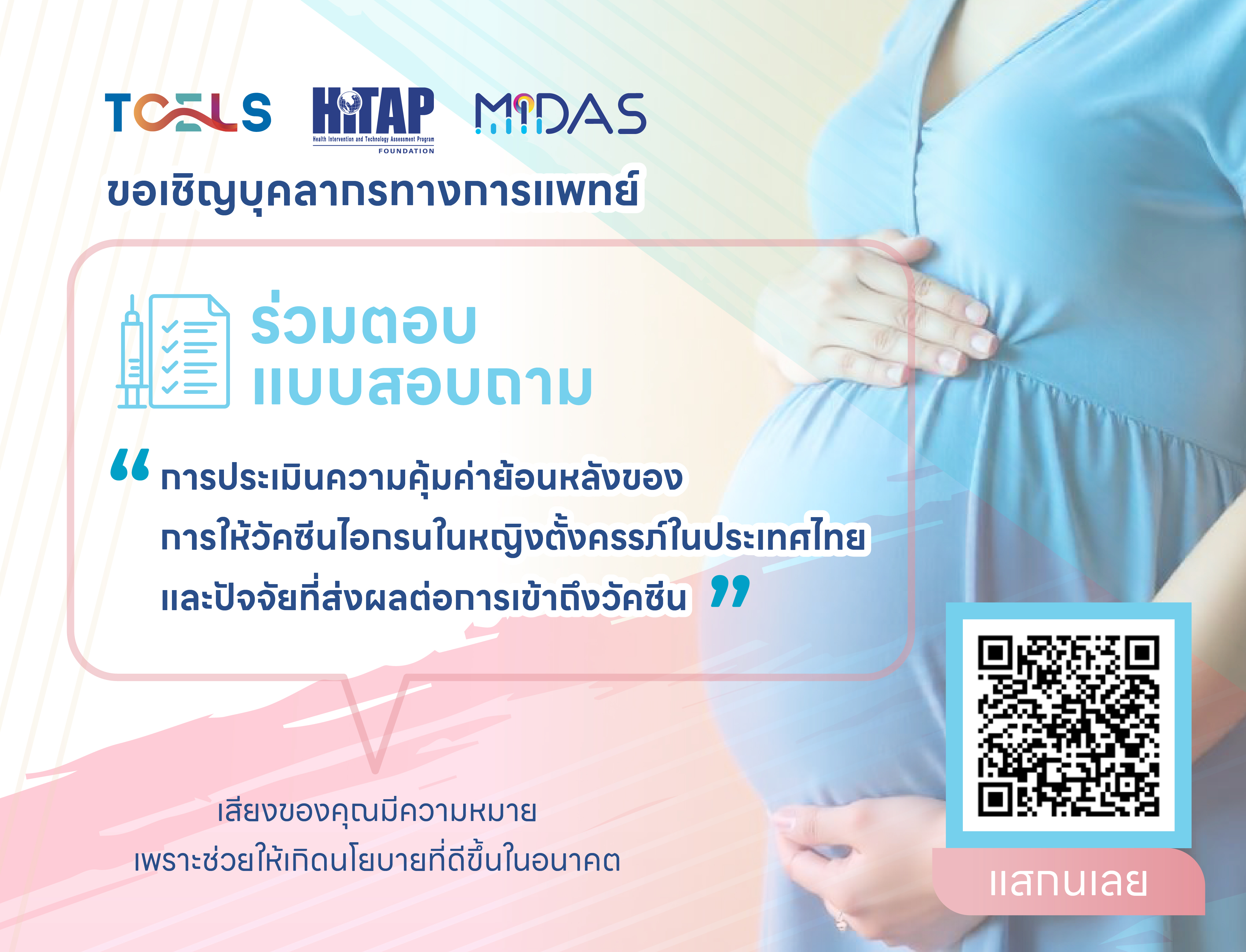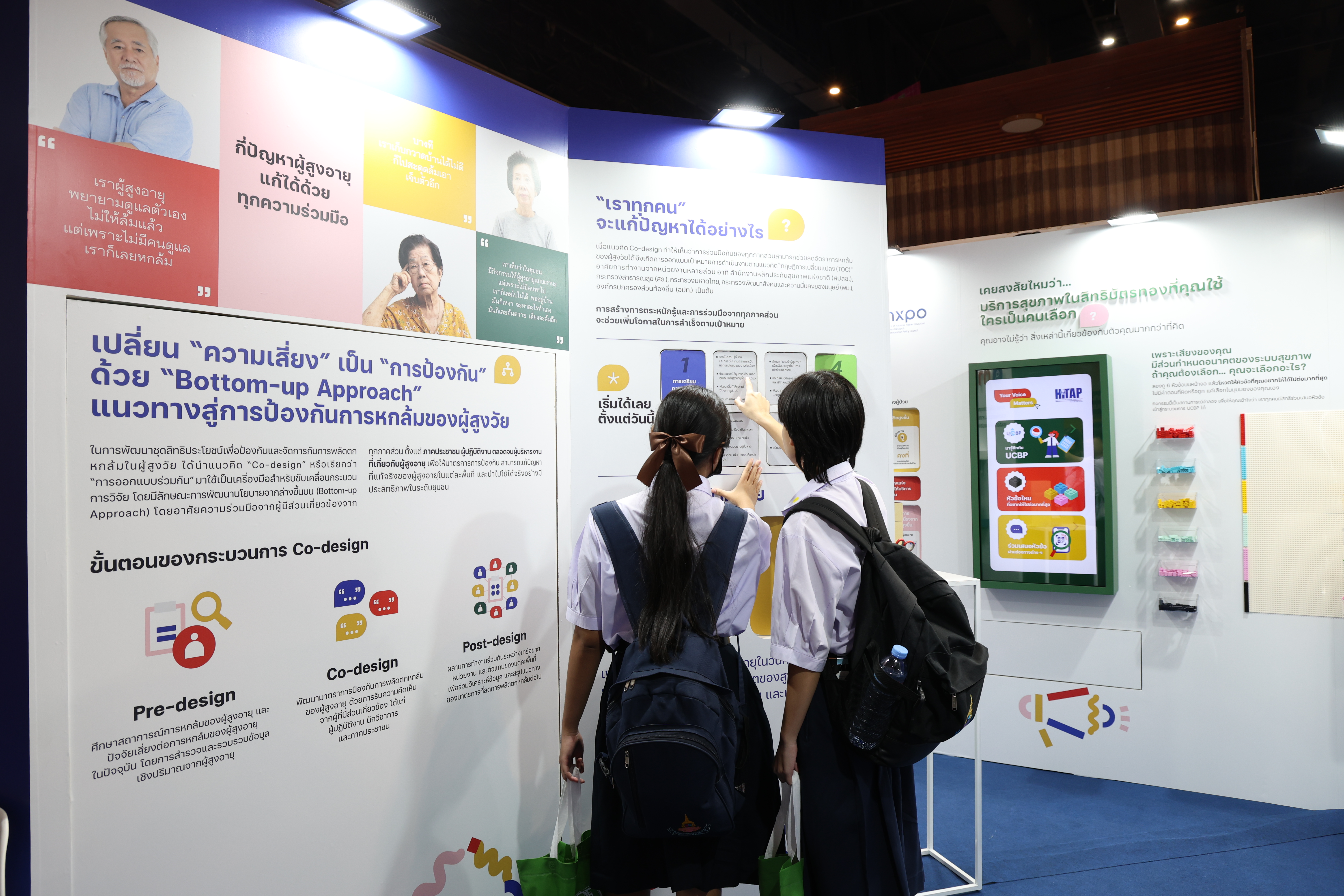ขอเชิญบุคลากรทางการแพทย์ร่วมตอบแบบสอบถาม “การประเมินความคุ้มค่าย้อนหลังของการให้วัคซีนไอกรนในหญิงตั้งครรภ์ในประเทศไทย และปัจจัยที่ส่งผลต่อการเข้าถึงวัคซีน”



A drug already on the market that treats immune disorders may help stabilize patients with Alzheimer’s disease for up to three years, according to the results of a tiny study presented at a conference on Tuesday.
All four patients who received the optimal dose of the drug, Gammagard from Baxter International, had no decline in several measures of cognition and daily function for three years, researchers said.
Dr. Norman Relkin of Weill Cornell Medical College, the lead investigator of the study, said the results were “remarkable” because patients with Alzheimer’s disease typically worsen within 12 months.
“If we have a patient who goes 18 months without changing we begin to doubt they have Alzheimer’s,” Dr. Relkin said in a news conference at the Alzheimer’s Association International Conference in Vancouver, British Columbia, where the results were presented.
But some experts not involved in the trial said it was premature to conclude that the drug was responsible for the stabilization.
“There will be some patients who at three years don’t have a decline” even without an experimental therapy, said Dr. Rachelle S. Doody, director of the Alzheimer’s Disease and Memory Disorders Center at Baylor College of Medicine. She said some patients go six or eight years without worsening.
Dr. Samuel E. Gandy, director of the Center for Cognitive Health at the Mount Sinai School of Medicine, said the results left him “optimistic to a minor degree, not really gushing.”
Whether the results are a fluke or not could be known by the first half of next year, when the results of a Phase 3 trial are expected.
The results presented Tuesday were from an extension of a 24-patient trial begun a few years ago. In the first six months of the study, those who received the drug did better than those who received a placebo. After that, patients could continue on the study, with all of them receiving the drug.
Sixteen patients completed three years of treatment. Five of those who originally received a placebo declined less rapidly once they shifted to the drug. Of the 11 who received the drug for the entire 36 months, those who got the optimal dose — which was a high dose — for the whole time fared the best.
That evidence “really suggests this is a drug effect and not just an accident,” said Bill Thies, chief medical and scientific officer of the Alzheimer’s Association.
Baxter’s shares rose 93 cents, or 1.7 percent, to $55.68.
Gammagard is a brand of intravenous immune globulin, or IVIG. Such products, which are also sold by several other companies, are antibodies from healthy people that are harvested from donated blood plasma. They are used mainly to treat rare immune system deficiencies.
It is not clear why the drug would work against Alzheimer’s. Some evidence suggests that antibodies in the drug block beta amyloid, a protein thought to be a cause of Alzheimer’s. Some evidence points to a general anti-inflammatory effect.
Treatment requires intravenous infusions every two weeks or so and can cause fever and chills and blood clots.
Because of the earlier results from the Gammagard study, some patients with Alzheimer’s disease are already using intravenous immune globulin off label. Doctors are allowed to prescribe an approved drug for a nonapproved use.
Dr. Relkin said he hoped the latest results would not spur more off-label use because intravenous immune globulin can sometimes be in short supply, and some people with immune disorders would die without access to those drugs.
It is estimated that the drug is now used to treat tens of thousands of patients. But there are several million with Alzheimer’s.
“There’s no way to collect enough plasma to treat that population,” said Michelle Vogel, executive director of the Alliance for Patient Advocacy.